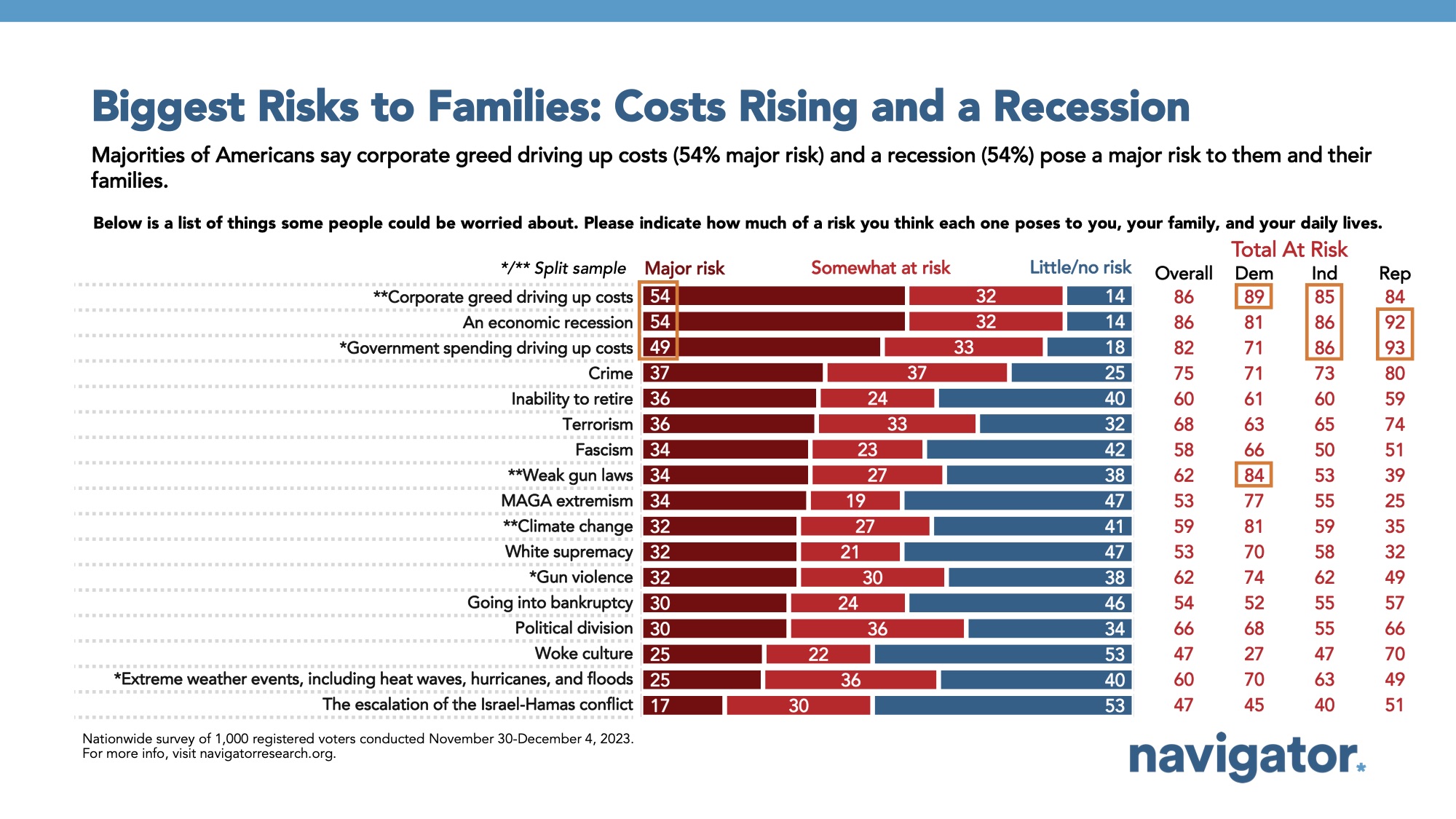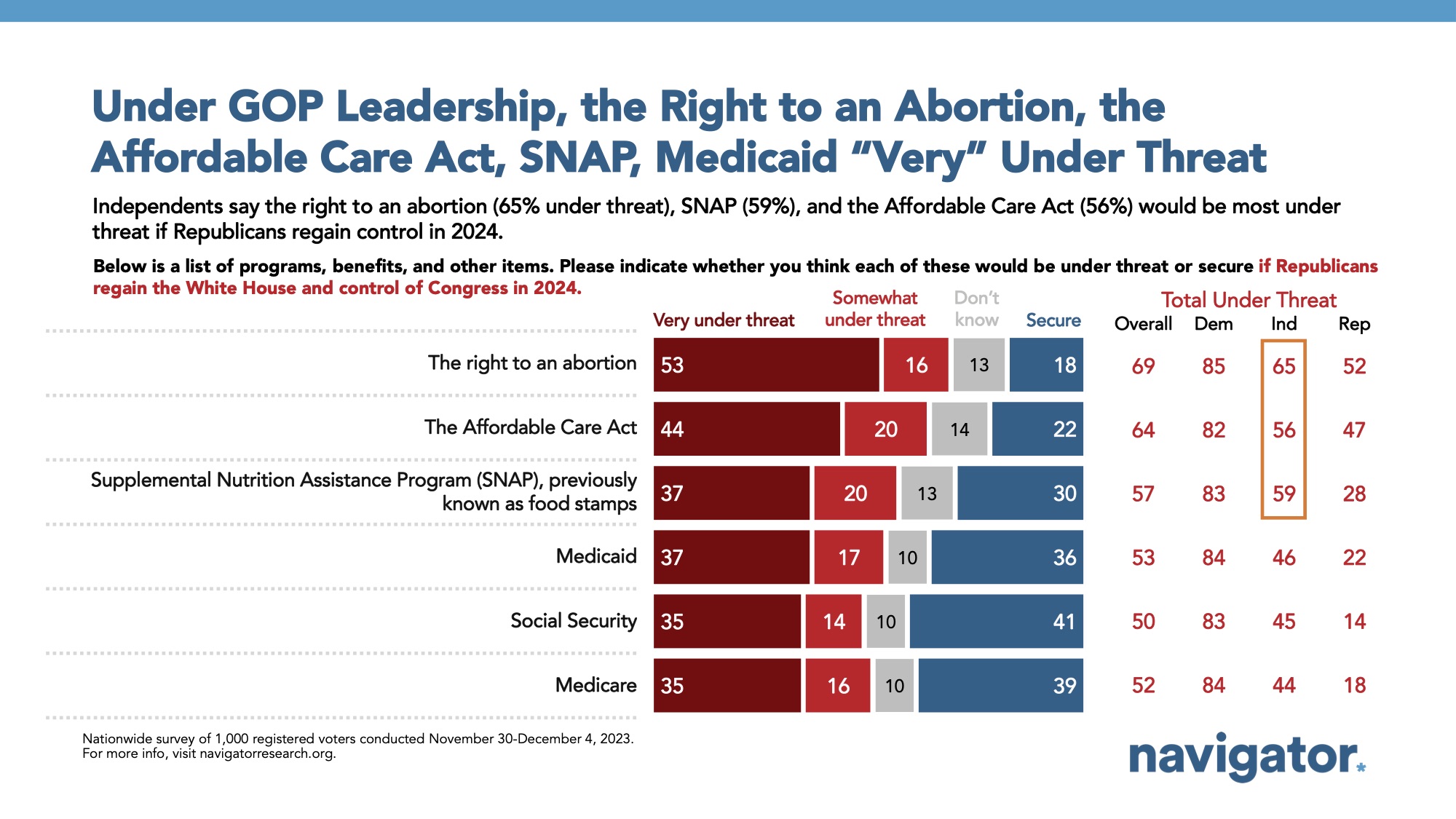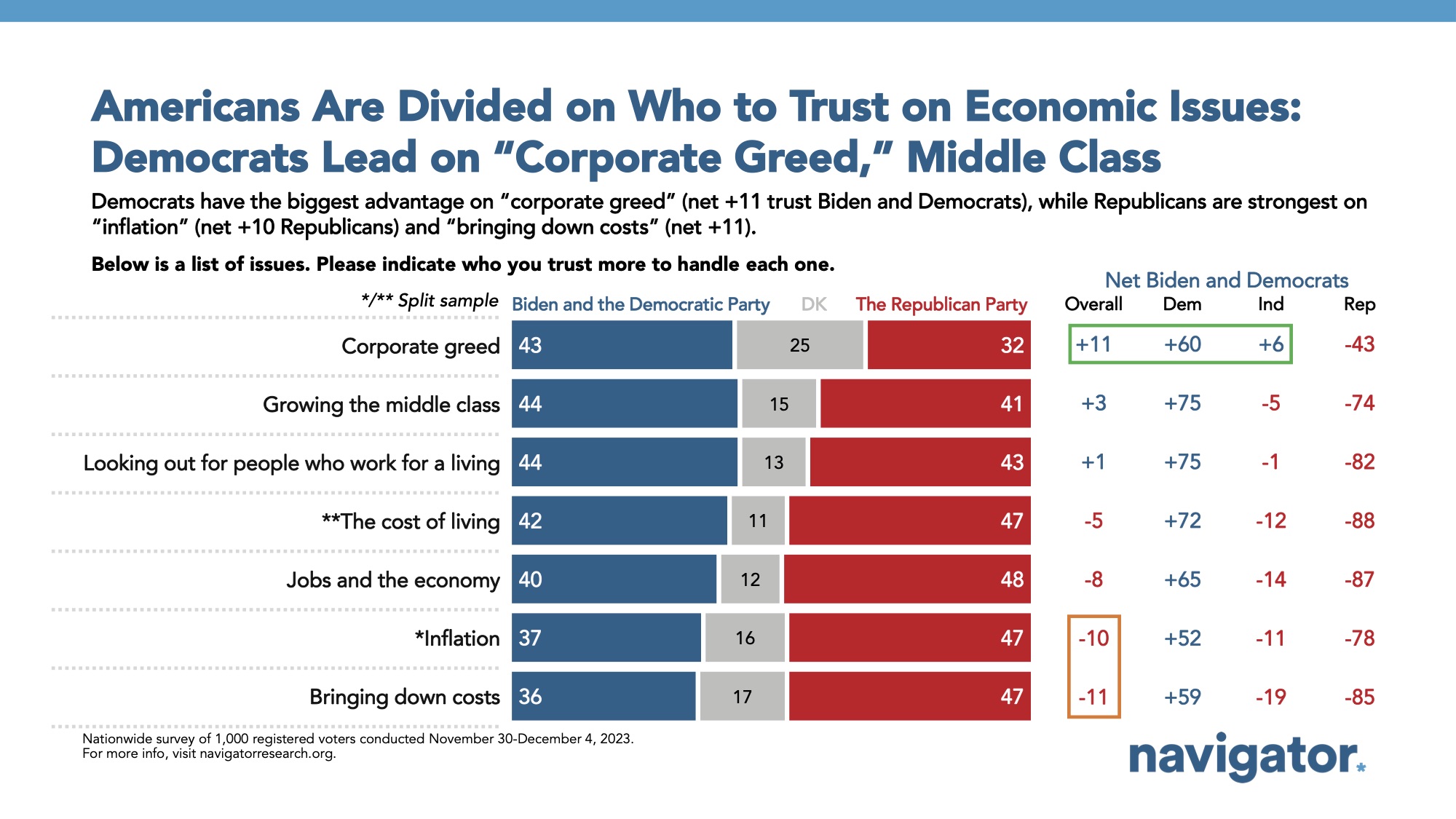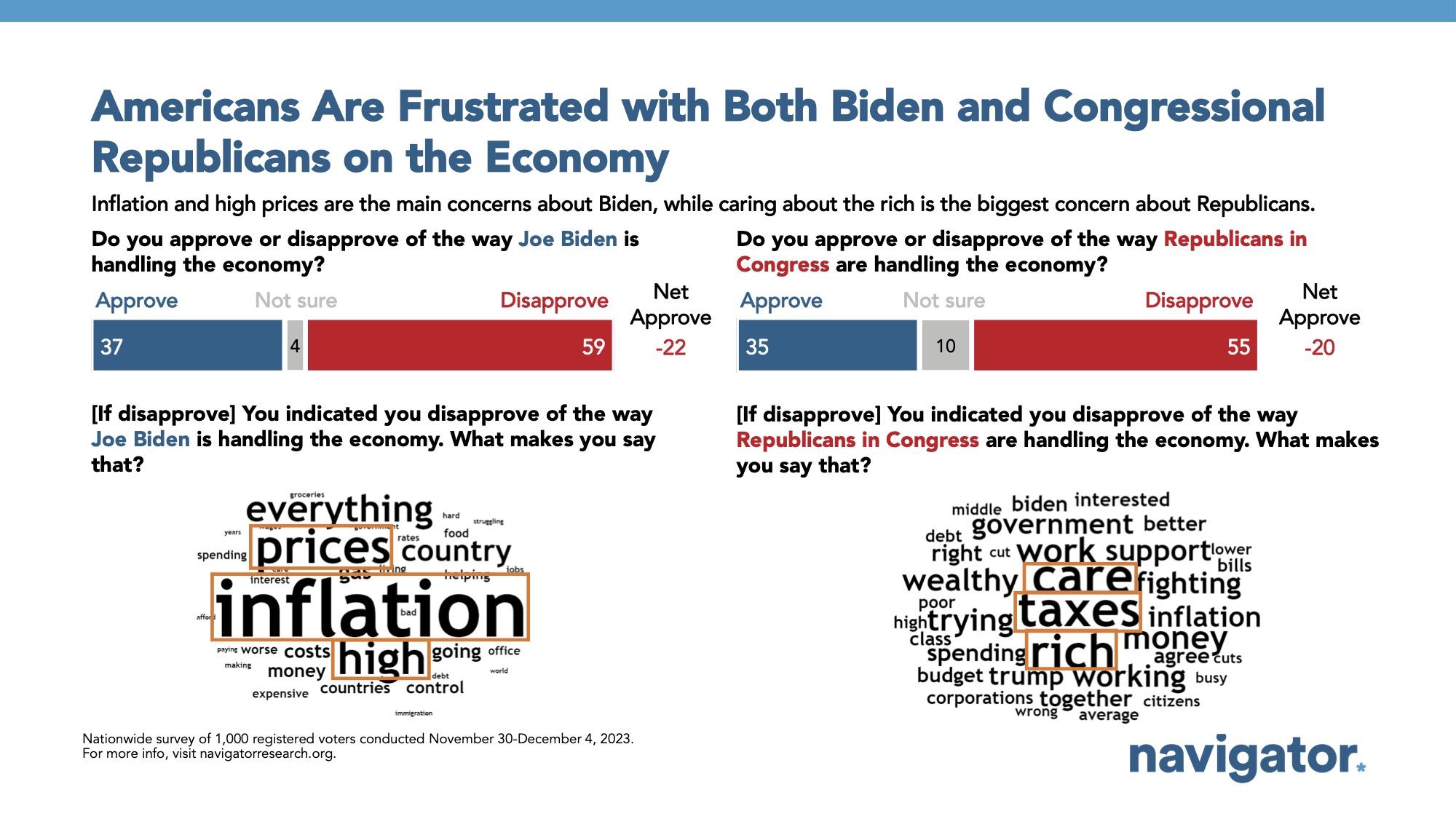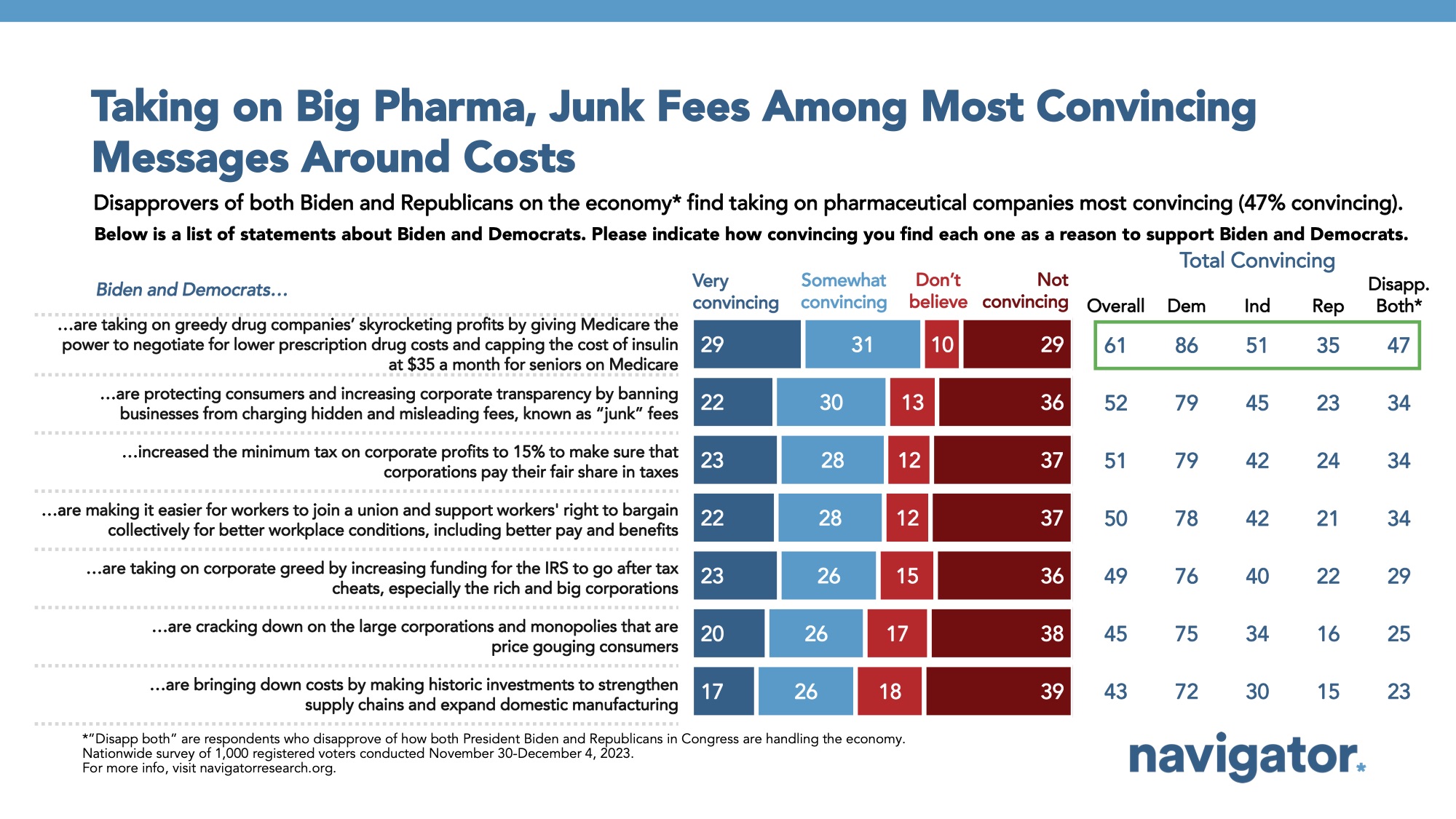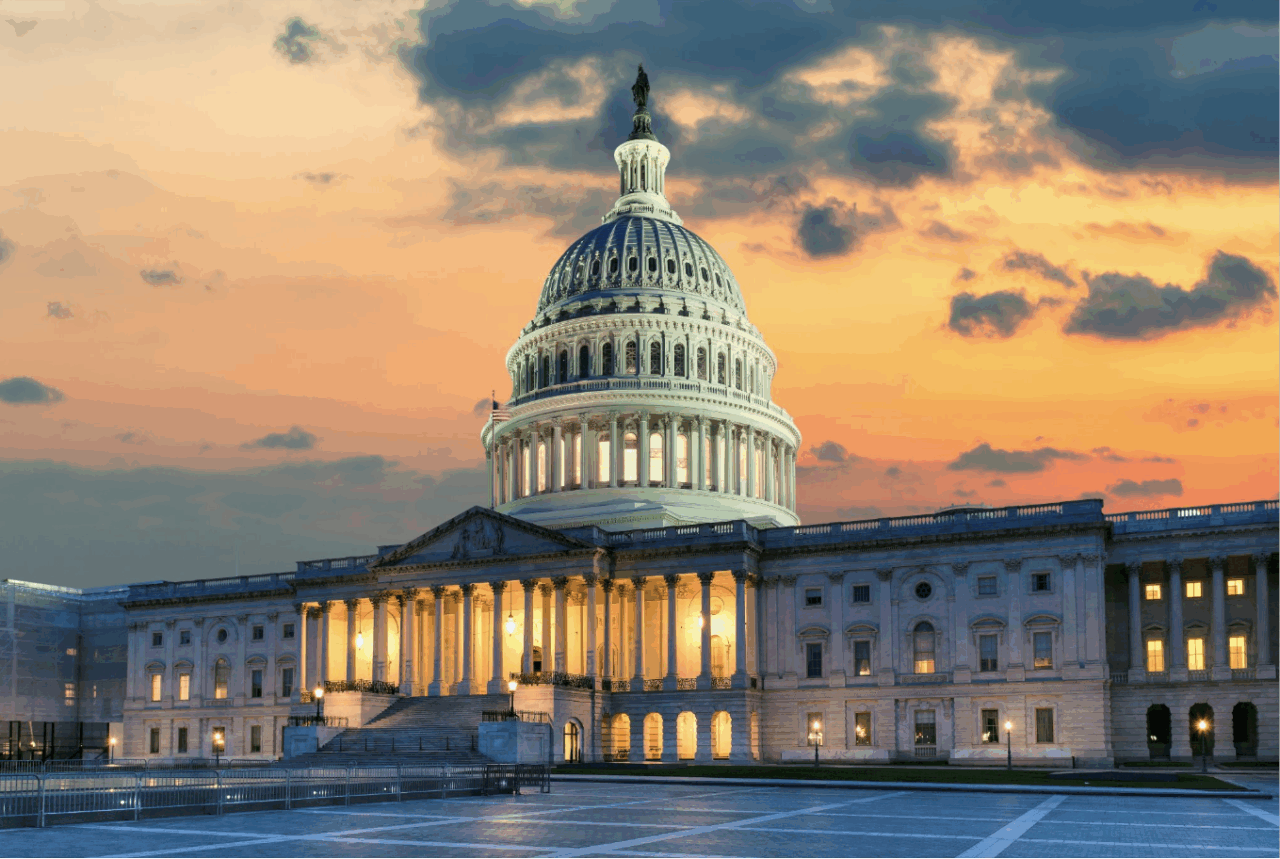Poll: Costs and Personal Finances
This Navigator Research report contains polling data on how Americans are weighing risks to themselves, their families, and their daily lives currently, what programs Americans believe may be under threat in the future, and which policies from President Biden and Congressional Democrats are seen as most convincing to support them.
Americans see corporate greed and an economic recession as posing the greatest risk to themselves, their families, and their daily lives.
86 percent of Americans feel corporate greed driving up costs poses a risk to the daily lives for themselves and their families, including 54 percent feel corporate greed poses a “major” risk. The risk is felt overwhelmingly across partisanship, including among nine in ten Democrats (89 percent poses a risk), and more than four in five independents (85 percent poses a risk) and Republicans (84 percent poses a risk). Other things Americans feel pose a risk to themselves, their families, or their daily lives include an economic recession (86 percent risk), government spending driving up costs (82 percent risk), crime (75 percent risk), and terrorism (68 percent).
If Republicans win control of the White House and Congress, majorities say various rights and benefits would be under threat.
Americans feel the right to an abortion, the Affordable Care Act, and supplemental nutrition assistance programs will all be under threat if Republicans regain the White House and control of Congress. Seven in ten Americans feel the right to an abortion would be under threat (69 percent) as a majority feel it would be “very” under threat (53 percent). Further, two in three feel the Affordable Care Act would be under threat (64 percent, including 44 percent who feel it would be “very” under threat). Other programs Americans feel would be under threat include Supplemental Nutrition Assistance Program (57 percent), Medicaid (53 percent), Medicare (52 percent) and Social Security (50 percent).
- In our last survey, a vast majority of Americans support increasing funding for Social Security (82 percent), Supplemental Nutrition Assistance Programs (72 percent), and the Affordable Care Act (76 percent), and this survey also found that three in five Americans view the Affordable Care Act favorably, the highest share in Navigator’s five years of tracking (net +37; 61 percent favorable – 24 percent unfavorable).
Americans are divided on which party they trust on looking out for people who work for a living and growing the middle class.
Democrats have slightly greater trust on growing the middle class (net +3; 44 percent Biden/Democrats – 41 percent Republicans); however, trust narrowly favors Republicans to grow the middle class among independents (net -5; 28 percent Biden/Democrats – 33 percent Republicans, with 39 percent who are unsure). Americans are evenly split on which party they trust to look out for people who work for a living (net +1; 44 percent Biden/Democrats – 43 percent Republicans), including among independents (net -1; 31 percent Biden/Democrats – 32 percent Republicans), while Democrats are slightly above water among Americans living in households earning between $50,000 to $100,000 per year (net +3; 46 percent Biden/Democrats – 43 percent Republicans).
- By an 11-point margin, a greater share of Americans trust Democrats on handling the issue of corporate greed (43 percent Biden/Democrats – 32 percent Republicans,) including among a plurality of Americans living in households earning less than $50,000 per year (net +8; 41 percent Biden/Democrats – 33 percent Republicans). Democrats are slightly more trusted among independents (net +6; 28 percent Biden/Democrats – 22 percent Republicans), but 50 percent of independents are unsure of which party to trust.
- Republicans continue to maintain trust advantages on handling the issue of inflation (net -10; 37 percent Biden/Democrats – 47 percent Republicans), jobs and the economy (net -8; 40 percent Biden/Democrats – 48 percent Republicans), and the cost of living (net -5; 42 percent Biden/Democrats – 47 percent Republicans).
The strongest corporate greed/cost messaging focuses on bringing down pharmaceutical costs.
Giving Medicare the power to negotiate for lower prescription drug prices, protecting consumers and increasing corporate transparency, making sure corporations are paying their fair share in taxes, and making it easier for workers to join a union and supporting collective bargaining are seen as the most convincing reasons to support the Biden administration and Democrats in Congress, including among those who disapprove of both Biden and Republicans in Congress on their handling of the economy. 61 percent of Americans find it convincing that “Biden and Democrats are taking on greedy drug companies’ skyrocketing profits by giving Medicare the power to negotiate for lower prescription drug costs and capping the cost of insulin at $35 a month for seniors on Medicare,” including 51 percent of independents, 47 percent of those who disapprove of both Biden and Republicans in Congress on their economic handling, and one in three Republicans (35 percent). Other convincing reasons include:
- Biden and Democrats are protecting consumers and increasing corporate transparency by banning businesses from charging hidden and misleading fees, known as “junk” fees” (52 percent convincing, including 45 percent of independents);
- Biden and Democrats increased the minimum tax on corporate profits to 15 percent to make sure that corporations pay their fair share in taxes (51 percent convincing, including 42 percent of independents); and,
- Biden and Democrats are making it easier for workers to join a union and support workers’ right to bargain collectively for better workplace conditions, including better pay and benefits (50 percent convincing, including 42 percent of independents).
About The Study
Global Strategy Group conducted public opinion surveys among a sample of 1,000 registered voters from November 30-December 4, 2023. 100 additional interviews were conducted among Hispanic voters. 75 additional interviews were conducted among Asian American and Pacific Islander voters. 100 additional interviews were conducted among African American voters. 100 additional interviews were conducted among independent voters. The survey was conducted online, recruiting respondents from an opt-in online panel vendor. Respondents were verified against a voter file and special care was taken to ensure the demographic composition of our sample matched that of the national registered voter population across a variety of demographic variables.

